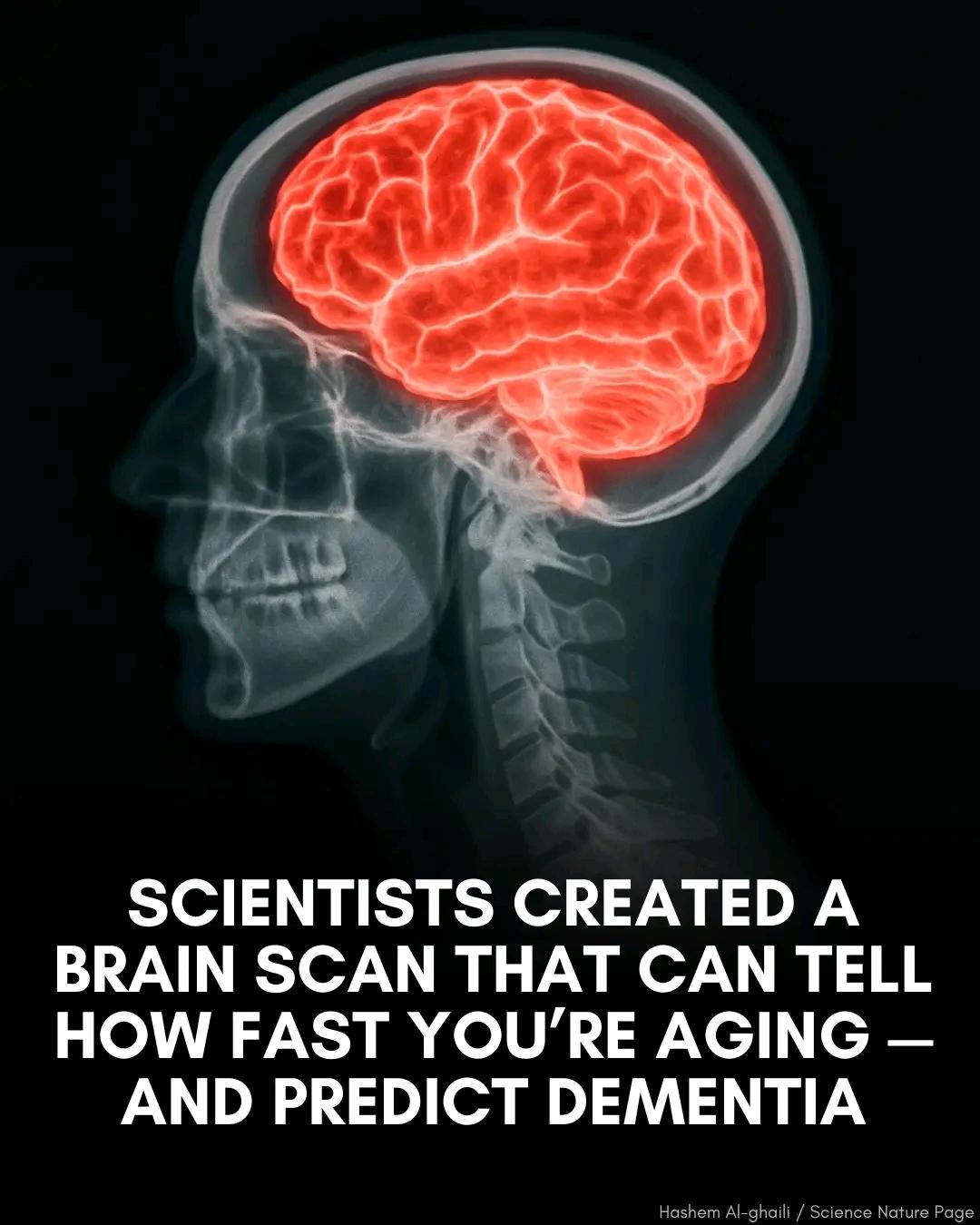🧠 A new brain scan can tell you how fast your aging
A single brain scan can reveal how fast you're aging and might even predict your risk of dementia and other health problems later in life, according to new research.
Scientists have created a tool called DunedinPACNI that uses brain scans taken in midlife to measure biological aging, the wear and tear on your body that doesn’t always match your actual age.
This tool was built using data from over 1,000 people born in the early 1970s in New Zealand, whose health has been tracked for decades.
DunedinPACNI looks at 99 brain features, like the thickness of the cerebral cortex and the volume of gray matter, to estimate how quickly someone is aging. When tested on data from over 50,000 people, it accurately predicted risks of conditions like dementia and heart disease.
The researchers say this approach works as well as or better than other biological age measures and applies across different groups of people. The idea is that if someone is shown to be aging faster than their chronological age, they could make lifestyle changes, like improving diet and exercise, years before major health issues appear. The team sees this as a way to identify dementia risk earlier, which is critical as rates of Alzheimer’s and related diseases rise globally. Although it’s not perfectly accurate, it shows promise as a quick, single-scan method to spot people who may need preventive care decades before symptoms show. This study was published in Nature Aging.
source
Whitman, E.T., Elliott, M.L., Knodt, A.R. et al. DunedinPACNI estimates the longitudinal Pace of Aging from a single brain image to track health and disease. Nat Aging (2025).
A single brain scan can reveal how fast you're aging and might even predict your risk of dementia and other health problems later in life, according to new research.
Scientists have created a tool called DunedinPACNI that uses brain scans taken in midlife to measure biological aging, the wear and tear on your body that doesn’t always match your actual age.
This tool was built using data from over 1,000 people born in the early 1970s in New Zealand, whose health has been tracked for decades.
DunedinPACNI looks at 99 brain features, like the thickness of the cerebral cortex and the volume of gray matter, to estimate how quickly someone is aging. When tested on data from over 50,000 people, it accurately predicted risks of conditions like dementia and heart disease.
The researchers say this approach works as well as or better than other biological age measures and applies across different groups of people. The idea is that if someone is shown to be aging faster than their chronological age, they could make lifestyle changes, like improving diet and exercise, years before major health issues appear. The team sees this as a way to identify dementia risk earlier, which is critical as rates of Alzheimer’s and related diseases rise globally. Although it’s not perfectly accurate, it shows promise as a quick, single-scan method to spot people who may need preventive care decades before symptoms show. This study was published in Nature Aging.
source
Whitman, E.T., Elliott, M.L., Knodt, A.R. et al. DunedinPACNI estimates the longitudinal Pace of Aging from a single brain image to track health and disease. Nat Aging (2025).
🧠 A new brain scan can tell you how fast your aging
A single brain scan can reveal how fast you're aging and might even predict your risk of dementia and other health problems later in life, according to new research.
Scientists have created a tool called DunedinPACNI that uses brain scans taken in midlife to measure biological aging, the wear and tear on your body that doesn’t always match your actual age.
This tool was built using data from over 1,000 people born in the early 1970s in New Zealand, whose health has been tracked for decades.
DunedinPACNI looks at 99 brain features, like the thickness of the cerebral cortex and the volume of gray matter, to estimate how quickly someone is aging. When tested on data from over 50,000 people, it accurately predicted risks of conditions like dementia and heart disease.
The researchers say this approach works as well as or better than other biological age measures and applies across different groups of people. The idea is that if someone is shown to be aging faster than their chronological age, they could make lifestyle changes, like improving diet and exercise, years before major health issues appear. The team sees this as a way to identify dementia risk earlier, which is critical as rates of Alzheimer’s and related diseases rise globally. Although it’s not perfectly accurate, it shows promise as a quick, single-scan method to spot people who may need preventive care decades before symptoms show. This study was published in Nature Aging.
source
Whitman, E.T., Elliott, M.L., Knodt, A.R. et al. DunedinPACNI estimates the longitudinal Pace of Aging from a single brain image to track health and disease. Nat Aging (2025).
0 Kommentare
0 Geteilt
328 Ansichten



